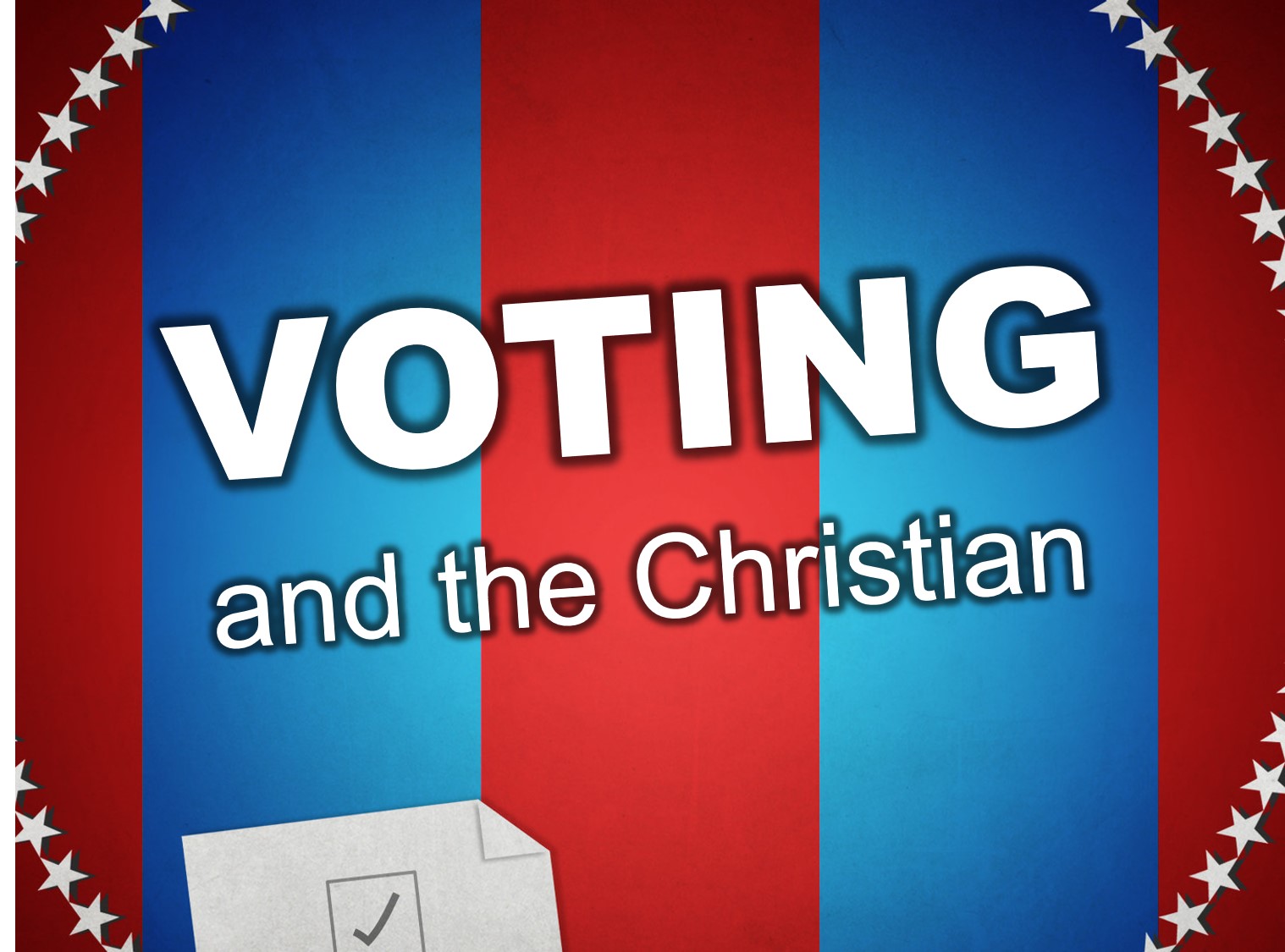Blog
M. W. Bassford
Judgment Calls and the Bible
Tuesday, February 18, 2020
Along with most other members of churches of Christ, I believe that the word of God is the sole authoritative guide to serving Him. In particular, I believe that within the New Testament, we can discern a pattern of work and worship in the first-century church that God expects all Christians to follow.
However, I also believe that this pattern is limited in its scope. The Bible does not provide an answer for every question that we might ask about the church. Should the congregation meet on Sunday night? Should there be three trays of bread on the Lord’s Supper table, or four (or trays at all, for that matter)? The Scripture leaves these issues, along with a host of others, to our judgment and discretion.
Judgment also plays a role in the way that we interpret many commandments. Sometimes, the role of judgment is limited. 1 Timothy 2:1-2 doesn’t leave Christians with a lot of discretion about praying for the government. We have to.
At other times, though, our understanding of a passage can’t be anything more than a judgment call. I have read numerous explanations of what “the husband of one wife” means in 1 Timothy 3:4. However, I don’t think there’s any way to conclusively determine from the text what the phrase means. Nor can we duck the question altogether—not, at least, if we want to appoint elders! Instead, each congregation must judge for itself what a husband of one wife is.
So too, the application of Scriptural principles is left to our judgment. I can clearly define what adultery is, but I can’t do the same with modesty or uncleanness. I can offer my judgment about whether a particular garment is modest, but that will never be anything more than my judgment. On the extremes, I think it becomes increasingly difficult to argue that my judgment is wrong, but on the margin, that argument is very easy to make.
All of this is important for several reasons. First, we must acknowledge that we do make judgment calls as we apply the word. Some brethren have real trouble seeing this. They are every bit as confident in what they say about modesty as in what they say about adultery, even though the Scriptural witness in each case is very different.
This is problematic. We need to be able to distinguish between our judgments and the judgments of the Lord, or else we will end up in the same boat as the Pharisees! Additionally, Christians who turn their judgment calls into matters of faith bring the Restoration project itself into disrepute. It’s easy for critics to point out their error and use that error to deny that a first-century pattern exists at all.
Second, we must acknowledge the right of others to make their own judgment calls, particularly when they differ from ours. Just because I see the right answer to a spiritual question so clearly does not mean that the answer is, in fact, clear. “Judge not, that you be not judged,” is not as broad as the world wants to make it, but it is perhaps not as narrow as we want to make it either.
Third, we must confess that not everyone’s judgment is equally good. We all differ in Biblical understanding, life experience, and good sense, and all those things affect the quality of our judgment. No, there is no text in the New Testament that explicitly says, “Thou shalt not drink any alcohol, ever.” However, it’s also the judgment of countless elders, preachers, and older sisters in Christ that drinking is a bad idea. Is it wise to reject the judgment of the wise? Probably not.
Rather than being a flaw in our conception of the Biblical pattern, the exercise and development of our judgment is one of its strengths. Just as God has given each of us the right to read the Scriptures for ourselves, He has given us the right to interpret and reason from them. As we grow in our ability to judge, we mature in Christ. May we use this gift wisely, yet fearlessly, so that the longer we walk with Him, the more we become like Him!
The Incognito Messiah
Monday, February 17, 2020
In this week’s reading, we begin to encounter what is one of the most surprising themes of the gospels. As Mark 2:34 reports, “[Jesus] healed many who were sick with various diseases and drove out many demons. And He would not permit the demons to speak, because they knew Him.” Lest we think that this spiritual gag order is confined to demons, consider a text that will appear in our reading in several weeks, Mark 1:44. There, after cleansing a leper, Jesus tells him, “See that you say nothing to anyone.”
The leper ignores Him, but that’s hardly the point. It’s clear that Jesus, who later tells His followers to preach the gospel to every creature, is doing the best He can to suppress the truth about His identity. What on earth is going on?
In order to understand this, we need to understand the urgent nature of Jesus’ ministry. Today, we think of someone who obeyed the gospel three years ago as a new Christian--if not a babe in Christ, at least a kindergartner in Christ! However, the entirety of Jesus’ ministry was only about three years long.
Some of His disciples had been disciples of John; others were observant Jews. Still others (at least Matthew, maybe more) had been irreligious. Regardless of where they began, though, none of His followers were prepared for the transformation in their thinking that the gospel demanded. They spent three years trying to drink from a spiritual fire hose!
Throughout His ministry, Jesus displays a painful awareness of how much His disciples have to learn and how little time He has to teach them. It’s not hard to hear the impatience in His voice when He says to them in Mark 8:21, “Don’t you understand yet?” Come on, people! We don’t have time for your hard-heartedness!
Three years proved to be enough time to get the job done, even if all the disciples crater pretty spectacularly when Jesus is arrested and crucified. One year, though, or even two? It seems likely that Jesus’ ministry lasted for three years because He knew that it was the minimum amount of time that it would take for Him to prepare His disciples. Jesus could raise the dead instantaneously, but changing hearts required three years of frustrating work (which is perversely reassuring to those of us who are in the heart-changing business!).
Those three years come to an end, of course, when the leaders of the Jewish nation decide that Jesus is an existential threat to them and must be killed. They didn’t come to this conclusion on their own. Jesus provoked them into it by raising Lazarus and challenging their authority on the very grounds of the temple itself.
It was vitally important for the chief priests to decide to kill Jesus, but it was just as important that they not reach that decision too early. If they did, it would have cut into that vital time He needed to teach His disciples. I don’t think they could have killed Jesus early, but they certainly could have made it impossible for Him to teach publicly.
However, if the chief priests are deluged with reports of a prophet whom even the demons proclaim to be the Son of God, they might well move early. Jesus, then, forbids them to speak not because the message is wrong, but because the time isn’t right. He doesn’t want the narrative to spin out of His control.
Rather than being irrational, then, Jesus’ desire to conceal His identity makes perfect sense. Not surprisingly, the Man who does all things well is able to keep the leaks to a minimum, to give Himself the time He needs to accomplish His mission. Today, we are able to hear the gospel because Jesus kept too much of it from being proclaimed too soon.
Why Not Use Both?
Friday, February 14, 2020
Several weeks ago, I encountered an article called “The Devolution of Christian Congregational Worship”. Judging from the title, I predicted that it would be another grumpy get-off-my-lawn rant about contemporary praise songs and the damage that they are doing to Christianity. I was not wrong.
As always, I am struck by the inability of many in the worship wars to find a middle ground. I love the great hymns of centuries past, but I also am aware that there were just as many stinkers written hundreds of years ago as there are now. Many praise songs written in the past 20 years resonate with me, and I can accept and appreciate even ones that don’t for the sake of my brethren who love them.
I suppose that if you are tethered to instrumental worship of some kind or other, you have to pick a side. Organ music is organ music, and praise-band music is praise-band music, and never shall the twain meet. However, within the churches of Christ, we don’t have that problem. It’s easy for us to sing “A Mighty Fortress” (circa 1529) and “Behold Our God” (circa 2013) in the same service without the result sounding discordant.
I think it’s a mistake to junk every hymn that wasn’t written in the past 20 years. However, I think it’s also a mistake to try to turn our worship repertoire into a museum. The only things that don’t change are dead, and new songs inject new life into our assemblies.
The key, I think, is for worship leaders to recognize and accommodate the different tastes that exist in a congregation of any size. The correct response to that old dude with the hearing aids in the back who grumps about “not knowing any of the songs” is not to reply, “OK, Boomer.” Instead, it’s to make sure that every service contains a few hymns that he does know.
Anybody who thinks that hymns from 100 years ago can’t be relevant to today’s Christians hasn’t thoughtfully considered the lyrics of those hymns. Maybe they’re not as accessible as the latest Hillsong smash hit, but all of us can benefit from examining our faith from a cultural perspective that is not our own. I suspect too that if Boomer feels like he’s not being ignored, he’ll be more willing to learn a song or two that he doesn’t know.
On the other end of the scale, you have younger brethren who are impatient with the status quo, who want to sing songs written in a culturally relevant style, who predict doom for the church if church music doesn’t sound like the world’s music. They shouldn’t be dismissed either.
After all, new things are always uncomfortable, and that goes double for what we sing in worship. 75 years ago, the radio hymns like “Victory in Jesus” and “This World Is Not My Home” met with fierce resistance from brethren who thought they sounded like hillbilly music. 150 years ago, the revival hymns of Fanny J. Crosby and Robert Lowry were critiqued for their vulgarity. 300 years ago, Isaac Watts had to sell congregants on the idea of singing anything in worship besides metrical psalms.
So too it is with the praise songs of today. Most of them will be mercifully forgotten. The best of them will be incorporated in the repertoire alongside “When I Survey” and “I Am Thine, O Lord” to be defended by tomorrow’s traditionalists from whatever the next worship movement will be. There is nothing new under the sun, not even when it comes to new songs.
For now, the best thing for us to do is to anticipate the results of the process. When we continue to sing from our musical heritage, while adding to it the best and most useful of what is being written today, the results should be acceptable to everyone. They should ensure that God is glorified by our unity as well as our song.
It's About Sex, Actually
Thursday, February 13, 2020
Without a doubt, the greatest marketing campaign of the modern era was (and continues to be) staged by the gay-rights movement. The recent sea change in the national attitude toward same-sex relationships is the result of a brilliant, decades-long initiative in framing and public relations. Though I don’t approve of the object, I can’t help but admire the skill with which it was carried out!
Consider, for instance, the erasure of the word “homosexual”. The progressive attitude toward the word is well summarized by GLAAD’s Media Reference Guide, which says, “Please use gay or lesbian to describe people attracted to members of the same sex. Because of the clinical history of the word ‘homosexual,’ it is aggressively used by anti-gay extremists to suggest that gay people are somehow diseased or psychologically/emotionally disordered. . .”
Indeed, just as there is no “I” in “team”, there is no “H” in LGTBQ+. I am skeptical, though, that the use of “homosexual” in a clinical context 75 years ago is the reason that it ended up on the ban list. Instead, it is because “homosexual”, unlike “gay” or “lesbian”, contains the word “sex”, thereby reminding the speaker and hearer that same-sex relationships are sexual relationships.
This was and is problematic for gay-rights champions because most men in the United States, even now, are repulsed by the thought of two other men having sex. “Homosexual rights”, then, is a viscerally unappealing term to just under half the population.
The solution to the problem was to drop “homosexual” in favor of “gay” and to make the gay-rights movement about love and marriage, not sex. Love and marriage poll a lot better than gay sex does. Who can be opposed to love?
From a Biblical perspective, though, this shift focuses attention in exactly the wrong place. Scripturally speaking, a homosexual isn’t somebody who feels a certain way or has a certain kind of personality. It’s a man who has been intimate with other men, and unless you have done that, you’re not a homosexual. The doing is what the Bible condemns.
By contrast, the Scriptures have nothing to say about men with personality traits that aren’t stereotypically masculine, nor even about men who love one another. Indeed, the word encourages that! John was the apostle whom Jesus loved. Today, it’s commonplace for me to tell a brother in Christ that I love him. It has nothing to do with sexual desire and everything to with the affection that we share in Christ Jesus.
“Being gay” is not a Scripturally cognizable concept, and it isn’t the problem. Two men loving one another isn’t the problem. Two men having relations with one another is the problem.
From here on out, American Christians are going to live in a world that accepts the practice of homosexuality. We have to acknowledge that and recognize that it’s going to be yet another barrier to our efforts to reach the lost.
As we discuss these things with outsiders, though, we must keep the real issue firmly in mind. Our concern is not with anyone’s inclinations and temptations, but with their violations of the law of God. If we allow others to make the discussion about anything else, we aren’t going to get anywhere.
Voting and the Christian
Tuesday, February 11, 2020
Some of the topics that the brethren here ask me to preach on are fairly innocuous; others are downright radioactive! So it is with this morning’s subject: how it is that Christians should vote. Obviously, 2020 is an election year, so voting is on everyone’s mind, and it is probably true that the outcome of the presidential election, especially, will have a significant effect on the country’s direction for the next four years.
In reaction to this significance, brethren have taken a variety of extreme stands. For instance, I know Christians who believe that unless you vote, and unless you vote in a certain way, you are sinning. At the other extreme, David Lipscomb and a number of other brethren in the 19th century believed it was a sin for Christians to vote or participate in government at all. These are some pretty strong views, but what does the Scripture actually teach? This morning, let’s consider the connection between voting and the Christian.
In this regard, the first thing that we must do is to HONOR THE CONSCIENCE. Here, consider Romans 14:1-4. On its face, this passage is about how Christians should handle disagreements over eating meat. However, the principles that Paul sets out here govern our interactions in any matter of individual judgment. Anytime the Bible doesn’t spell out clearly what we should do, Romans 14 tells us how to handle it.
Though this is not obvious to many Christians, voting is just such a matter of individual judgment. Here’s why. Unlike the Old Testament and the Qur’an, both of which have much to say about good government, the New Testament is a moral code meant for Christians and churches, not nations. When we try to turn it into a code for nations, which it was not meant to be, we end up using our judgment to pick and choose which parts apply.
Now to this, some might say, “That’s not true! When I’m in the voting booth, I vote the Bible and the whole Bible!” That might be our self-perception, but it’s not really what we’re doing. Let me give you an example. I think all of us here this morning are agreed that adultery is a sin, and it’s very important for all of us to avoid adultery.
However, for few of us does that carry over into politics. We don’t make their position on adultery a litmus test for candidates. Indeed, we even may be willing to vote for candidates who have committed and are still committing adultery. We have used our judgment to decide that something that is very important to us religiously is not important to us politically.
Don’t get me wrong. I don’t think that’s a problem. It’s impossible for us to vote without making these kinds of judgments, and I think that God gives us the freedom to vote as long as we do so according to our conscience and best judgment.
We must acknowledge, though, that we are following our conscience and our judgment, and therefore must not judge or despise brethren whose conscience leads them to vote differently. I recognize that there are brethren who are passionately committed to Candidate X and cannot understand why another Christian might vote for Candidate Y instead. However, our passion does not give us the right to condemn another’s conscience. Even if we think their choice is terrible, we must respect their right to make it.
Second, when it comes to electoral matters, we must SPEAK WISELY. Consider Paul’s admonition in Colossians 4:4-5. Even though this is specifically about outsiders, it surely applies to the way that we speak to one another as well.
In particular, there are three elements of wise speech that I want us to consider. The first of these is that wise speech is truthful speech. Sad to say, there are many Christians who are not careful with the truth when politics is involved. I think the problems come when we do get too attached to candidates and parties. We become so passionately convinced that our candidate is the best ever and the other candidate is the worst ever that we become willing to believe every slander that is made against them. We’ll see some meme on Facebook and click “Share” because it feels true to us even though a little digging would reveal that it came straight from a Russian robot! Brethren, repeating slander is slander too, and it’s a sin. We have to be careful!
Second, we must speak graciously to speak wisely. This too is the result of misplaced zeal for politics. We become dead sure that we are right, right, right, and anybody who disagrees with us is wrong, wrong, wrong! It becomes our goal, especially on social media, to shove the truth down the throats of the folks on the other side. Well, guess what? That’s contentiousness, and contentiousness is a sin too! Over the past several years, I’ve seen far too many cases of brethren who aren’t friends anymore and won’t even speak to each other because of political disagreement. Make no mistake: that’s tragic and wrong.
Third, we speak wisely when we remember our true goal. We are called to be Christians first and political partisans second, and nothing we say as political partisans ever should interfere with our work as Christians. Offending people with the truth of Christ is one thing. Offending people over politics is quite another! Here’s a good litmus test: If somebody from the other political party read what we have to say about politics on Facebook, would they still want to go to church with us? If the answer is “No”, we have gone too far.
Indeed, the last thing that I want to encourage us to do this morning is to PUT THE GOSPEL FIRST. Look at Paul’s great statement of faith in Romans 1:16. It is the gospel that is the power of God to salvation, and only the gospel. Politics and voting never can be.
This has implications first of all for our congregation. Let me be clear. This is not a Republican church. This is not a Democrat church. This is a church that belongs to Christ. In the work of this church, we are wholly devoted to Him, and that means that we have neither time nor attention to spare for dabbling in politics. It also means that regardless of how they voted, all who seek the Lord are welcome here.
Second, no matter how attached to our political causes we may be, we must acknowledge that politics can’t save souls. Only people who are willing servants of Jesus will inherit eternal life, and no government, no matter how powerful, can make the unwilling become willing. Through the threat of punishment, the government can change actions, but it can’t change hearts. Only the gospel can do that, one heart at a time.
I’d be the first to admit that our country has a lot of problems. Indeed, we live in a world with a lot of problems. Given those problems, I understand why so many look to politics as a savior. In reality, though, the only Savior is Jesus Christ. If we want to change the world, we do that by proclaiming Him, first, last, and always.
This is why, for so many, social media represents a giant missed opportunity. They’ll share all these memes and get in all these political arguments, but when it comes to the gospel, they have little to nothing to say. Brethren, is that right? Let us never put our hope in voting, politics, or the government. Let’s put it in Christ where it belongs.


